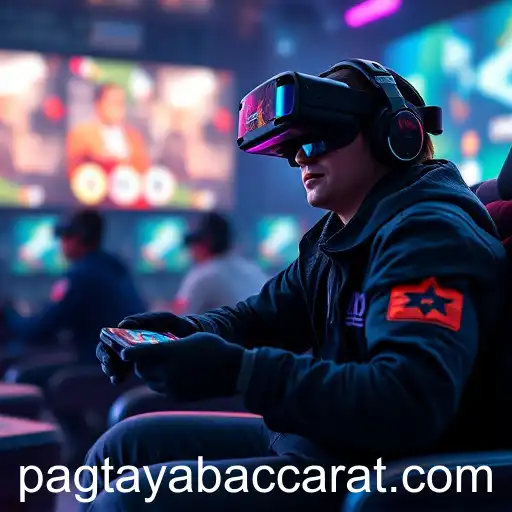
Exploring the growth and impact of online gaming in today's digital landscape.
In recent years, online gaming has become a powerhouse within the entertainment industry. It is an evolving landscape where the boundaries of technology and recreation continuously shift to offer new experiences. Among the plethora of games captivating audiences worldwide, the keyword 'pagtaya' has ascended as a buzzword on numerous English gaming websites, symbolizing the intertwining of play and competitive spirit. This trend is reflective of a broader transformation echoing through various sectors today.
The impact of online gaming is manifold. Economically, it has created a billion-dollar industry that continues to grow at a remarkable pace. Games like 'Fortnite' and 'League of Legends' command colossal followings and showcase the technological prowess of developers. Events such as eSports tournaments dwarf traditional sporting events, not just in global viewership but also in prize pools. This economic vitality is mirrored in job creation, especially in software development, design, content creation, and digital marketing sectors.
Socially, gaming communities foster global interactions that transcend geographical boundaries. They offer platforms for collaborative engagements and competitive participation, bonding individuals across diverse backgrounds. This ability to bring together players globally characterizes the essence of online interactions today. However, it also raises discussions concerning mental health and online etiquette, urging stakeholders to establish guidelines safeguarding participants' well-being.
Technological advancements underpinning these developments are nothing short of impressive. The introduction of high-speed internet, augmented reality (AR), and virtual reality (VR) has elevated gaming experiences to a new dimension. Players find themselves immersed in lifelike environments, blurring the lines between virtual and reality. Innovations in game graphics, AI, and interactivity continue to escalate, promising even more thrilling futures.
In commentary, one cannot overlook the dynamics surrounding legislation and online gaming regulations. As its influence grows, governments and regulatory bodies face the challenge of creating frameworks that protect consumers while nurturing creativity and innovation within the industry. Balancing regulation with freedom remains a delicate undertaking.
In conclusion, the journey of online gaming is a testament to the adaptability and resilience of the digital entertainment sector. With strategic 'pagtaya' integrated into gaming paradigms, the industry promises an exciting trajectory. As we look to the future, it will be intriguing to witness how online gaming continues to shape our social fabric and economic landscapes.




